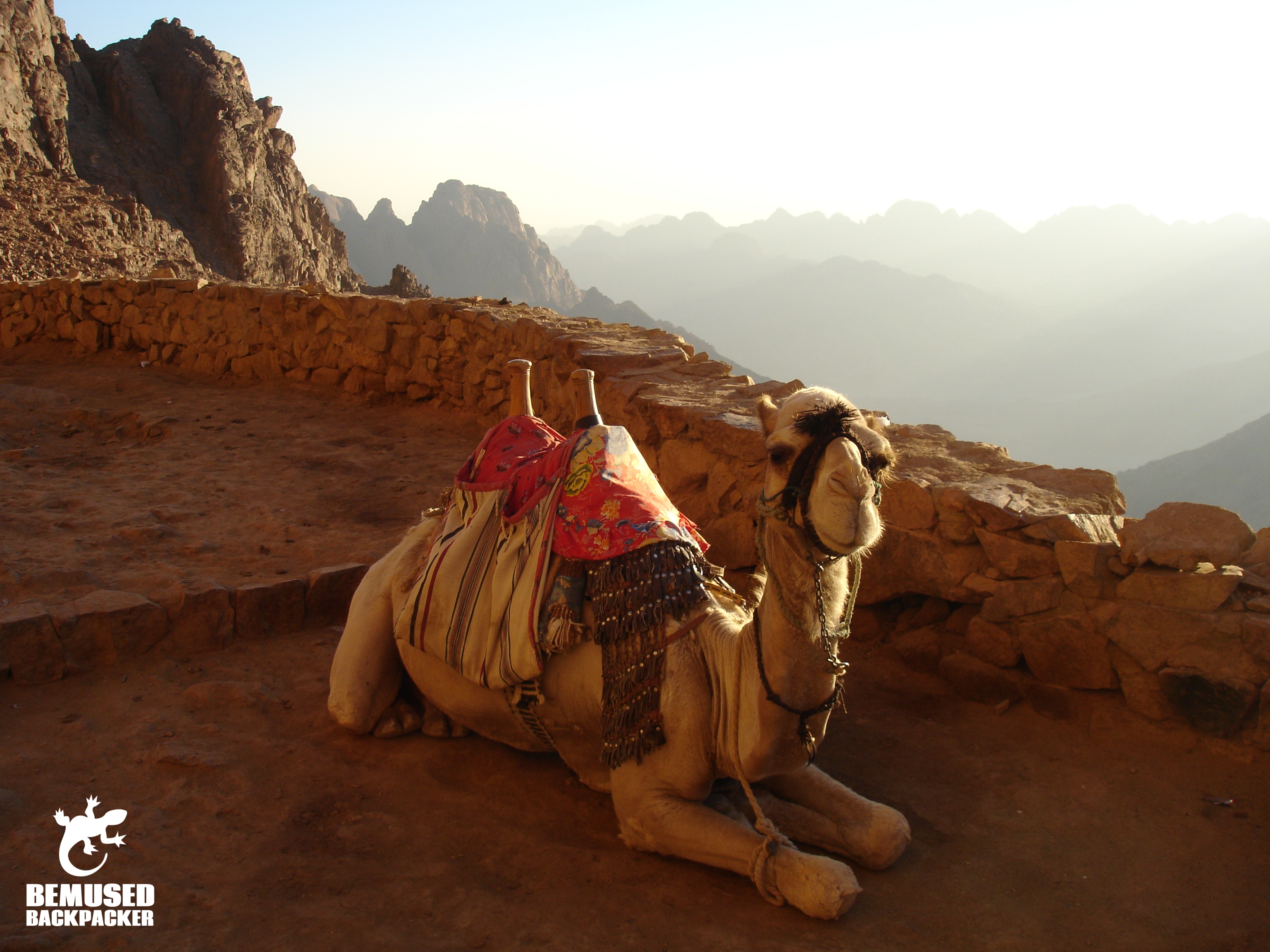
Camel treks and safaris are a popular tourist activity around the world, but is camel riding ethical or responsible? Is Camel trekking harmful to the animals and should travellers and backpackers be riding a camel at all on their gap years? It is time to ask if we can’t find a better, more ethical and responsible camel trekking practice, should we stop riding camels altogether?
The travel industry has embraced a lot of change in recent years when it comes to responsible wildlife interaction, and ethical animal trekking in particular, the changes made to the elephant trekking industry in recent years is testament to that, but so far the humble camel has been largely ignored.
Like most travellers and tourists I have ridden camels in the past, long before I knew enough to start questioning what I was doing, and now that I do know more I cannot continue to blindly engage in the practice without at least asking some hard questions.

Camel safaris and treks are a common activity for many gap year travellers and backpackers heading to desert regions in particular, with camel treks being sold throughout Egypt, Morocco and Jordan among many other countries.
Petra alone has 1,350 camels and horses that ferry tourists to and from the UNESCO world heritage site every single day. Tourists love them and tour operators make a lot of money from them. Unfortunately despite new laws to protect camels and other animals used for treks and safaris, that don’t go far enough and arguably miss the whole point entirely, a number of charities are stating that the animals are kept in poor conditions and forced to work under grueling schedules that are harmful, abusive and in some cases deadly.
The same is true in Egypt, particularly in major tourist sites such as Giza, where touts and scam artists can be relentless in trying to force tourists onto the back of a camel. Again, not all of these camels are kept or treated in an ethical or humane way with many operators putting the need for profit and the tourist wishes above any care for the animals involved.
Quite often their owners do not have the expertise, knowledge or even resources needed to keep their camels in a responsible way, and this can have a detrimental impact to their wellbeing and health.
So Is It Ethical To Ride A Camel On Your Gap Year?
Well, it depends.
The big problem is that there is actually very little research at the moment specifically related to camels, and much of the work that has been done by international organisations and charities have tended to lump the advice for camels alongside that of horses and donkeys.
But does this really do the issue justice? There are plenty of irresponsible horse riding operations and donkey riding outfits out there, and on the surface they are very similar, but should a distinction be made?
Essentially at the moment, advice from many major animal welfare organisations or charities do not have specific advice on camel safaris or treks.
So for now, without any specific research on camels themselves, the best approach is probably to understand the issue in terms of all animal riding operations.
What Are Animal Rights Groups And Wildlife Charities Saying?
A recent YouGov poll for the animal charity SPANA (Society for the Protection of Animals Abroad) found that 28% of adults who have travelled abroad have taken part in activities such as camel treks where they have had concerns for welfare of the animals involved. Even when removing such questions as how many of the other 72% knew what to look for or understood enough about animal welfare to be concerned in the first place, it is pretty clear that there is a big problem.
PETA (People For The Ethical Treatment of Animals) has taken the stance that all forms of camel riding is cruel and abusive, but they take that extreme stance with everything concerning wildlife tourism, and it is not always as clear cut as that.
A similar charity, Born Free, who usually take a similar hardline stance, actually do not in this case. Without any clear evidence to suggest that riding camels is in and of itself harmful to them, they take the same stance most other organisations do and do not have specific guidelines for camel treks or safaris, instead preferring to take the same approach they do with horses and donkeys which is to say that rides themselves are fine (or at the very least not bad) as long as the way they are run is responsible and ethical, and as long as the conditions in which they are giving these rides are beneficial to the camel’s care and welfare and do not cause them due harm or distress.
The Society for the Protection of Animals Abroad (SPANA) have actually gone a lot further and published specific guidelines for tourists and travellers who want to choose responsible working animal operators. Their Holiday Hooves guide again covers horses and donkeys as well as camels, but is an excellent guide for what travellers can look out for and what they can do.
What Is The Answer To Negative Camel Tourism?
With this in mind, the Born Free Foundation along with ABTA, the association of travel agents and tour operators as well as the Federation of Tour Operators and other NGOs, have established the five freedoms, a minimum standard that all animals in the tourism industry need and should have unfettered access to.
- Food and water.
- A suitable Living environment.
- Good Health.
- An opportunity to exhibit natural behaviours.
- Protection from fear and distress.
This best practice has evolved into the five domains, which is the new industry standard and gives minimum standards that all animals in the tourism industry need and should have unfettered access to. These are in short:
- Nutrition
- Environment
- Physical Health
- Behaviour
- Mental Domain.
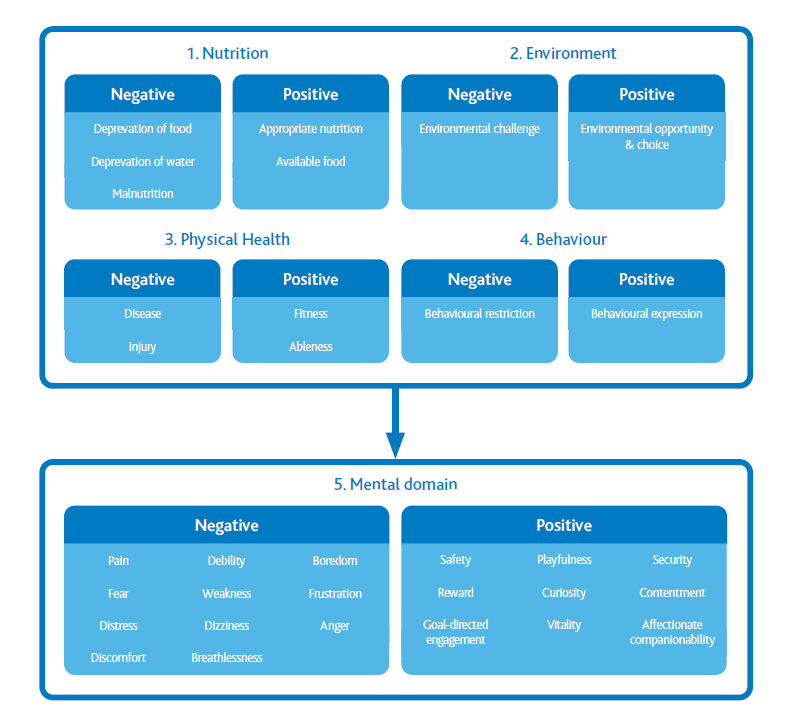
These standards are being rolled out across the established travel industry in the West, and should be a bare minimum standard used for any camel trek or safari.
The Benefits Of The Five Domain Approach.
Using the five domains and fighting for ethical and beneficial working conditions for any camel used in any trek, safari or any other activity not only ensures that they are treated well and kept in safe, comfortable conditions, but also provides operators with the ways and means to do so.
Of course this approach should also be flexible enough to change if new research comes to light saying that Camels are absolutely harmed by being ridden.
But this way allows for the care and ethical welfare of camels in the industry whilst bringing in the profit – and therefore the incentive – for operators to do just that.
Essentially if tour and trek operators know there is inherently more value and profit in looking after the camels they rely on for their business and treating them well, they will do so. The flip side of the coin of course is the status quo at the moment is that many will simply use them as resources to make profit with no focus on the animals welfare.
There is a clear need for any tour operator in the travel industry to make a profit, the aim is to ensure that they do so whilst treating all animals in their care humanely, with respect and in accordance with transparent and robust animal welfare standards.
This way camels – and any animal or wildlife for that matter – are recognised as a precious resource that whilst being a source of income, also need to be looked after.
Quite frankly this forces a paradigm of if they look after the camels, the camels will look after them.
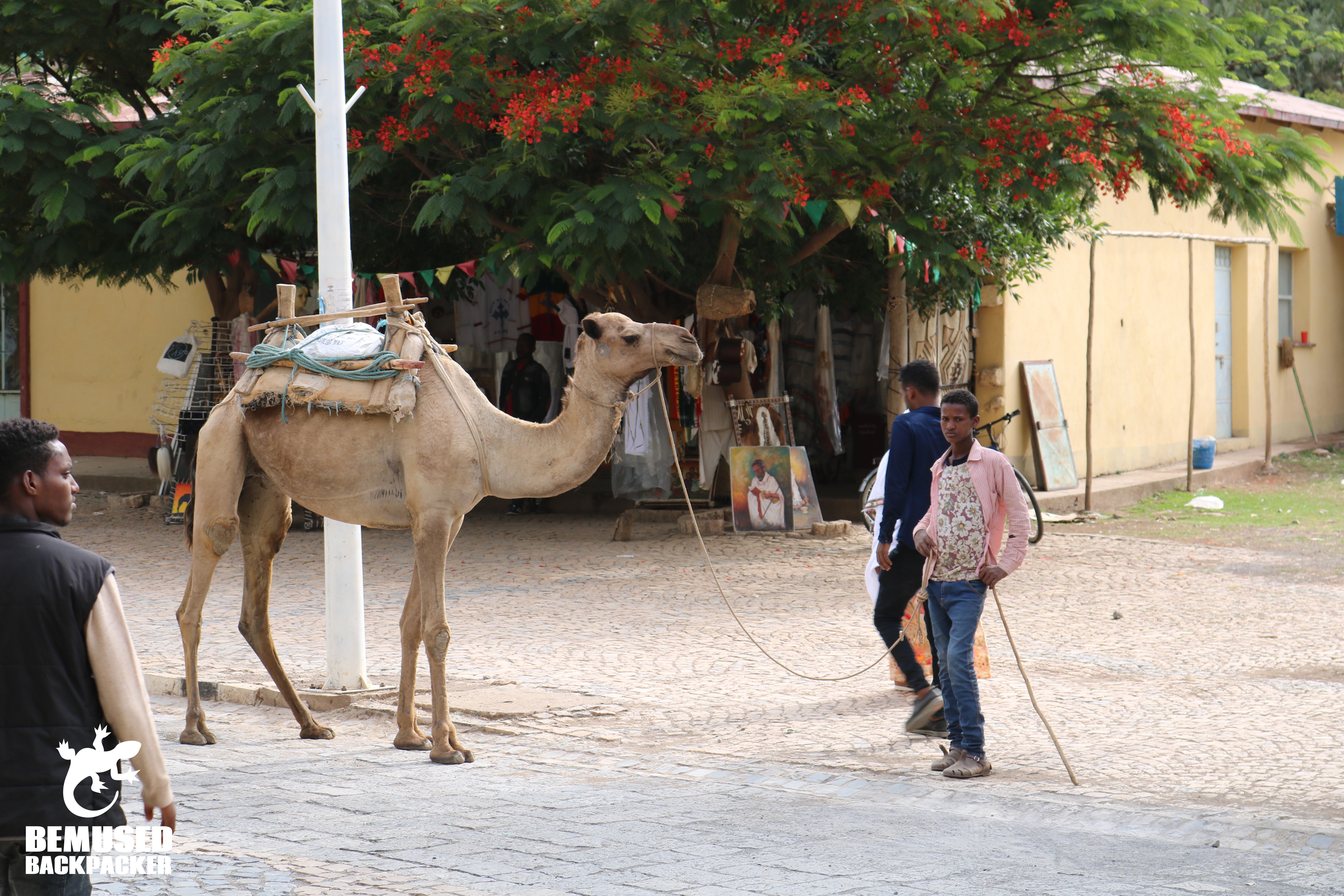
The Role Of Travellers In This Approach.
So how do travellers ensure that the conditions that camels are kept in are responsible and ethical? Well, simply by doing their research and only supporting those companies and operators that conform to responsible and ethical standards, and put the welfare of their camels above the needs of tourists.
Laura Higham Veterinary Advisor to the Society for the Protection of Animals Abroad (SPANA) states “holidaymakers are in a unique position to use their spending power to change animal welfare for the better.”
Just as in the case of elephant trekking in the last few years, the industry has been forced to change because travellers themselves demanded it.
They started to boycott the unethical elephant trekking companies that continued to offer elephant rides and instead used their vast economic power to support ethical elephant sanctuaries. Companies could see where the profit was going and changed their practices as a result.
It is a genuine shame that profit has to be the deciding factor, but at least it is an effective tactic. Money talks and money works.
There is still a lot of work to do and there are still bad examples out there, but now at least the riding of elephants is generally accepted as bad, and ethical elephant sanctuaries are becoming increasingly the norm.
The exact same process can and should be used for camel safaris and camel treks.
What Do Tourists Need To Look For On A Camel Safari?
By using the five freedoms mentioned above, travellers can ask enough questions and observe enough practices to be able to determine if an operator is ethical or not.
A camels accommodation should be the first thing any traveller should ask about. Where are the stables located? Are the close? Are they suitable?
Camels should be kept in herds in a large enclosure, with a significant section that provides them with adequate shelter, not permanently tied up and exposed to the elements awaiting use, which is common in many popular tourist attractions such as Petra in Jordan or Giza in Egypt. Alongside effective protection from the elements a camels stable should have adequate ventilation and enough room to move around and lie down in a clean suitable environment.
A camels health and welfare is also extremely important.
Contrary to popular belief, camels can get dehydrated, and it is essential to ensure that they are adequately fed and watered. Yes they can technically survive without water for a long time, but that doesn’t mean they should have to.
All camels should have access to plenty of water at regular intervals.
Camels should also not have to carry excessive burdens such as seating rigs that can hold a number of tourists, nor should they be exposed to controlling devices such as sticks or bullhooks. These can cause serious damage to the camels skin and can even lead to infection. The same goes for any type of chain, muzzle or strap that is inappropriate or too tight.
A simple padded sack, or better still just a blanket should be more than adequate, and before any ride travellers should take a quick look at the camels skin. You don’t have to be a vet or an expert to know what an open sore or a wound looks like.
Rest is also an important factor.
One of the major criticisms of camel safaris and treks in places such as Giza or Petra is that the camels are used relentlessly to ferry tourists back and forth without any rest. Again there are no specific guidelines to say how much rest should be given, but it is quite clear that the norm should be that camels are not worked constantly all day every day without extended rest periods. Travellers should ensure they work with operators who rotate their working herd and limit the amount of time camels are utilised to provide rides, and allow the animals to rest.
How old are the animals involved?
The last check is not an easy one, and it is easy to be fooled by savvy tour operators, but you should still try and find out the age of the camels. Camels are not fully mature until they are 6 to 8 years old yet economic factors force some operators to use their camels at far too young an age, stunting their growth and causing physical damage to bones that are not yet fully formed.
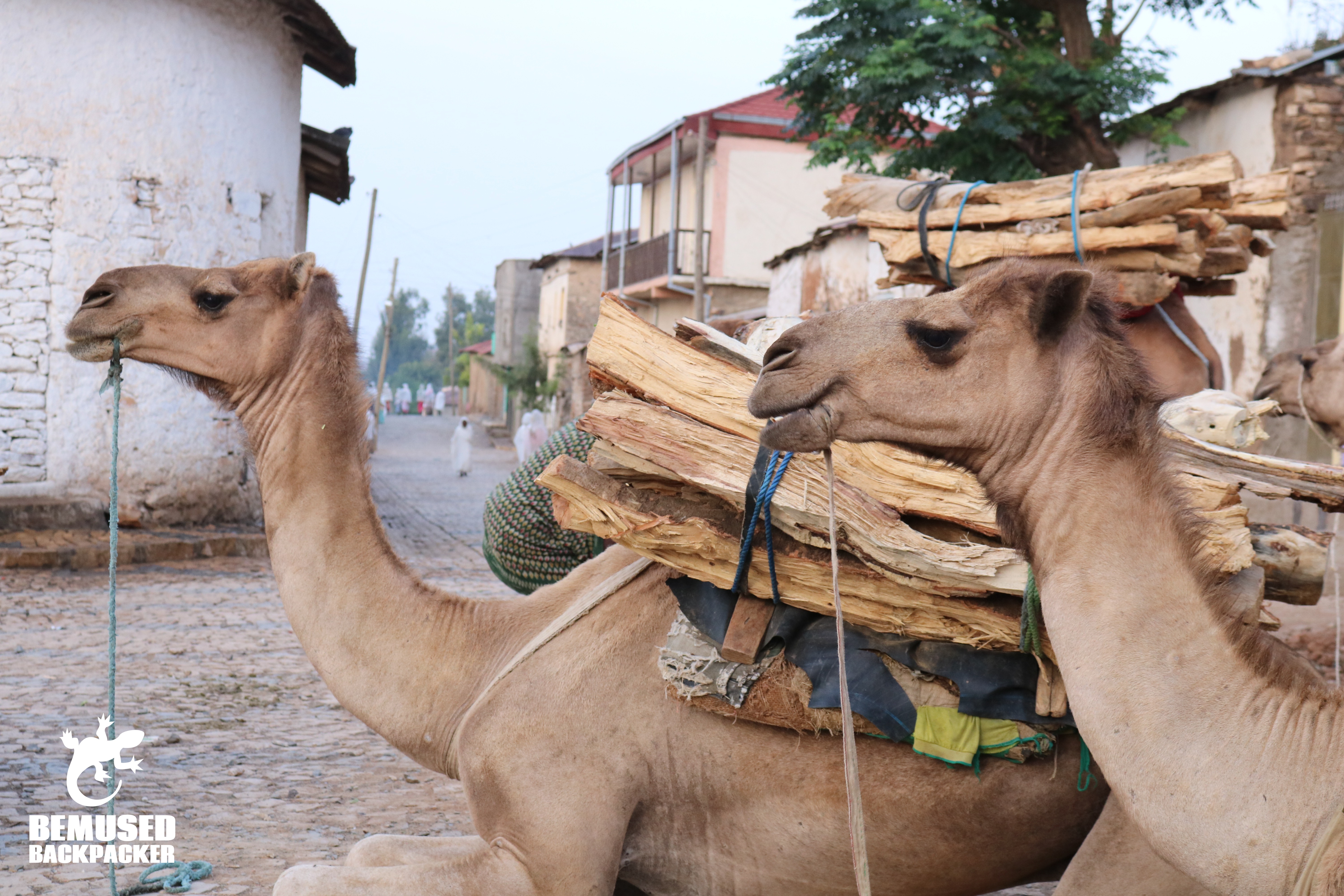
Camel safaris can be an extremely enjoyable activity for tourists, and can be done responsibly and sustainably in a way that provides a lot of profit for tour operators and cares for the animals and ensures they are kept in healthy, responsible conditions.
The problem is that there are a large amount of operators out there who are not responsible, who do not treat the camels in an ethical or sustainable way and care only about profit. There are an even greater number of camel trek and tour operators out there who do care about their camels, but lack the resources or knowledge to take care of them or run their business in an ethical and responsible way.
The trick for tourists is to know what to look for, know what questions to ask, avoid the bad examples out there and instead support the responsible operators who truly look after their camels as much as – if not more so – than they do the tourists.
Did you enjoy this article? I would love to hear your thoughts in the comments section below or on my Facebook or Twitter pages and please feel free to share it with any or all of the social media buttons. If you want to get more great backpacking tips, advice and inspiration, please subscribe to updates via email in the box to your right.
Related Articles.
The Elephant In The Room: Why You Shouldn’t Go On An Elephant Trek In Thailand.
The Horrible Truth About Animal Sanctuaries.
Why I Walked Across Mount Bromo’s Sea Of Sand.
Why Zoos Are An Important Part Of Responsible Wildlife Tourism.


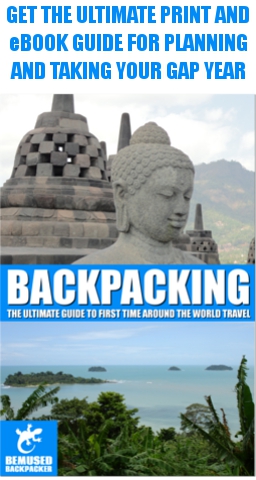


This was a fantastic article, thank you so much for sharing! So well thought out and informative 🙂
Thank you so much I’m glad you think so. 🙂
I honestly don’t know where I fall on this one, it is such a difficult issue, but I aplaud you for talking about it. Animal welfare is such an important topic in tourism and from what I can find no one is talkng about this particular issue at all. I guess camels aren’t as ‘sexy’ to read about compared to elephants.
I think you are right Louisa, there is definitely more focus on the bigger, more popular animals. I think it is a difficult issue too but hopefully one that will get easier the more people talk about it.
Such an interesting article, good job on raising awareness about it!
Thanks Adam, it’s a topic that is hardly ever talked about.
I have ridden a few camels before in Egypt and other places but I honestly never even considered any issues like these, Ikind of just assumed they looked cared for so it must be okay.I’ll definitely think more about my actions in the future, thank you.
That’s awesome to hear Sophie, it may very well be that the places you have been in the past did look after their animals, but it’s all about checking and asking those questions in the future. Thanks for the comment.
Wow I never really thought about this in this way before, amazing post.
Thank you, if it is getting people to think a little about the issue it is doing its job!
If you want to see the desert there are tour agencies which arrange this on KatKats (like a landrover) in Morocco for sunrise trips to Merzouga. No need for camels.
That is very true Miguel.
Such a thought provoking post, I never even though about it as an issue before.
Thank you. It definitely doesn’t get talked about much.
I got here by watching the Bachelorette last night where they rode camels in Las Vegas! I was concerned for the animals – still don’t know if they have the same backbones as horses do. to carry burdens.
I didn’t know about the 5 Freedoms – thank you SO much for this.
Last, I would like to see attribution tor photos – like the last one – even if it’s yours! Protects artists everywhere.
You are very welcome Donna, at the moment the five freedoms are the best standard we can use until more research is done. All the current evidence suggest that there is no reason to think they are wholly different from horses in a tourism/burden respect but I will keep a close eye out for any changes.
Great article definitely a eye opener
Thank you so much. 🙂
I really wish I had come across your article earlier! I rode a camel a few weeks back in Morocco, and while the animals appeared to be well cared for, I have been thinking about the ethics behind doing so. Instinctually, I knew not to ride elephants when I was in SE Asia – something in my brain refused to believe that it was okay even before I read up on it – but I didn’t think about it at all beforehand when it came to camels – probably because I knew that people who lived in the desert had been doing so for so long. I really wish I had asked a few more questions though. I will make sure to do so in the future.
Hi Hannah, it is a really difficult thing to figure out, when I started travelling fifteen years ago no one was even questioning riding elephants. You can’t question what you did in the past but you can inform what you do in the future, and if you are asking the right questions and trying your best to do things ethically, you may not get it perfect all of the time but you are doing the right thing, and that is what counts. 🙂 I hope you enjoyed Morocco.
Thanks for this, I’ve been trying to research responsible wildlife tourism and specifically camel tourism, and this is literally the only well informed post out there.
Thanks so much, glad you found it useful.
Good to see such a balanced article on this issue.
Thanks so much for reading. 🙂
Such an interesting discussion, honestly I’m still not sure where I fall on the issue but thanks for the insight, this is honestly the only genuinely informative and balanced article I have read on it, and there aren’t all that many!
Thanks so much, and I’m glad you are looking at both sides of the issue.
Great article on this, for such a common activity you would really think there would be more information from the major charities.
You’d think so. Unfortunately they tend to concentrate on the larger and more popular animals
Interesting. Thanks for writing this, I have seen camels and horses in many places and always wondered about wether it was ethical for them to be used like that for tourists.
It’s a difficult subject because there is so little information out there.
This is such a great and I think underappreciated post and exactly why I love your blog! Much more needs to be written on the effect on camels in the tourist industry!
Thanks so much